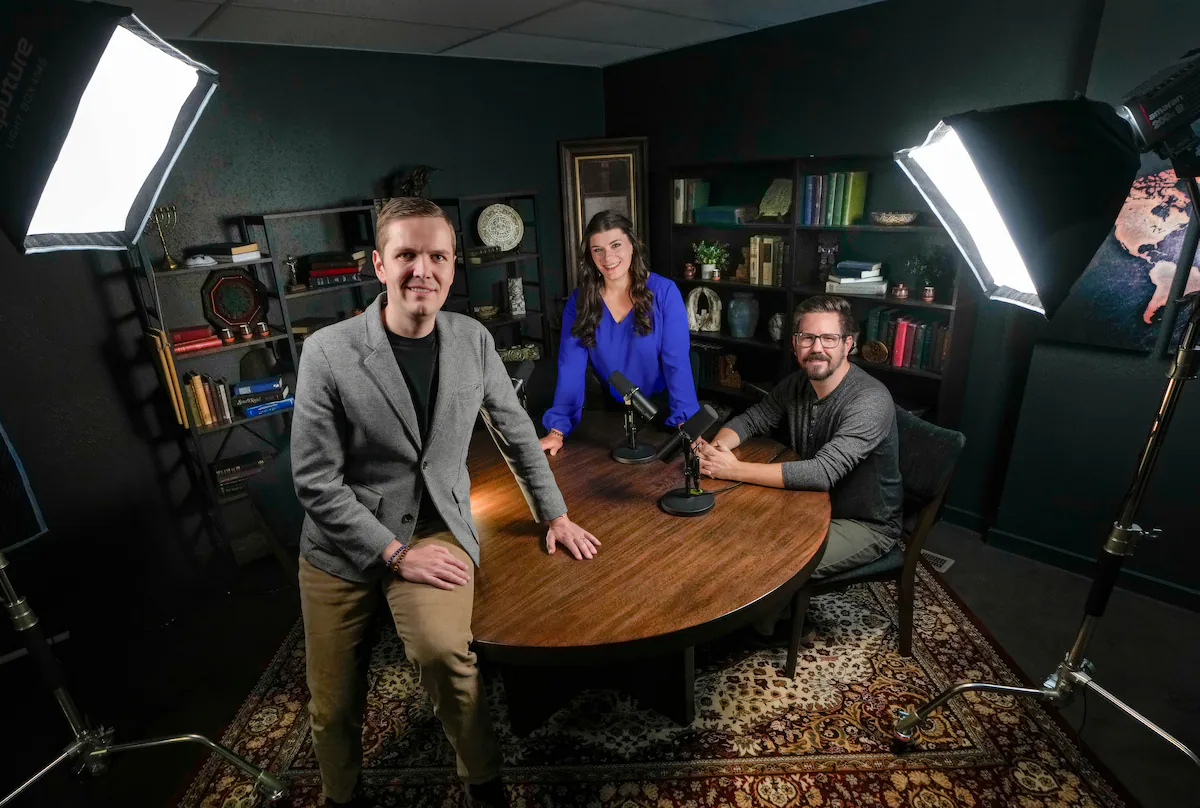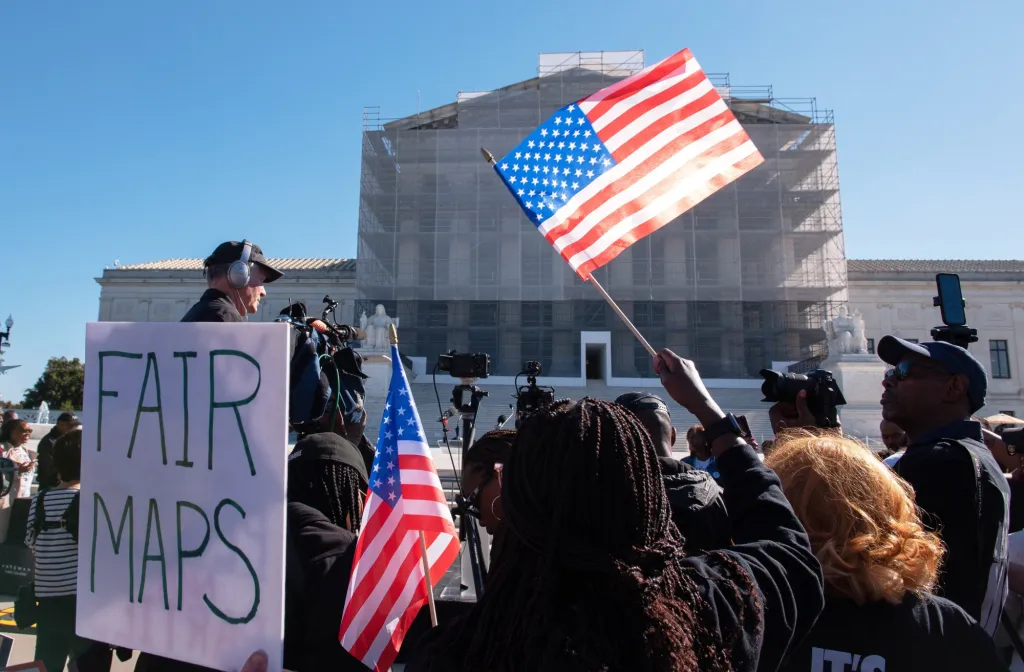Copyright Salt Lake Tribune

Jasmin Rappleye is certain that rigorous scholarship is no foe to faith in Latter-day Saint truth claims. The influencer, in fact, believes the two reinforce each other. And along with her husband, Neal, plus scholar Stephen Smoot, she’s out to prove it with the recent launch of the podcast, “Informed Saints.” “We’re doing apologetics, but we’re not apologizing for being Latter-day Saints,” Jasmin said. “We’re very confident and comfortable in our beliefs.” For years, Jasmin served as one of the most public faces of Scripture Central, an independent and influential hub of podcasters and content creators working to build faith in The Church of Jesus Christ of Latter-day Saints. Her explainer-style videos, often focused on temple worship and church history, regularly garnered thousands of views, while the account she appeared on, @scriptureplus, swelled to nearly 100,000 followers. Then, in April, Jasmin, director of communications for the operation, walked away from all of it. Neal, a researcher for Scripture Central who had been there almost since its start about a decade ago, joined her. The couple tiptoed around the reasons for their exodus. (“We felt that the organization was going through a lot of changes,” Jasmin said, “and that it was time to move on.”) Like the Bible’s Lot, they aren’t looking back, only forward to their new endeavor with Smoot, a doctoral candidate in Semitic and Egyptian languages and literature at the Catholic University of America. Jasmin has an undergraduate degree from church-owned Brigham Young University in Ancient Near Eastern Studies, and Neal studied history and political science at Utah Valley University. Funding their efforts is the Ancient America Foundation, a nonprofit that, according to its website, “expands and spreads knowledge of early American peoples, cultures, and histories.” The Rappleyes and Smoot spoke with The Salt Lake Tribune about the focus and future of “Informed Saints.” The following has been edited for length and clarity. Who’s the audience and what’s the mission for ‘Informed Saints’? Jasmin • One of the goals of the Ancient America Foundation is to help build informed testimonies. And the way we feel like we can contribute to that is through communicating the scholarship better. We feel passionately that there are a lot of great reasons to support the gospel of Jesus Christ. We want to bring those reasons to the forefront in a way that is accessible and clear — reasons why you can believe in and be a proud member of this church based on our truth claims. Is the Book of Mormon true? Is the Book of Abraham true? What about [church founder] Joseph Smith and polygamy? All the hard questions. Smoot • Another big constituency of ours is anybody who’s trying to find reliable information on The Church of Jesus Christ of Latter-day Saints. There are sincere individuals on social media who are just misinformed on a lot of topics. There are also bad faith actors with less than pure intentions in terms of what kind of information they’re sharing about the church. So another part of our mission is to inform anybody who might get onto Google or social media to look up stuff about “the Mormons.” Some of the topics you’ve taken on include the multiple accounts of the First Vision, Latter-day Saints living in Germany under the Nazi regime and the trend of Latter-day Saints arguing that Joseph Smith didn’t practice polygamy. Why start with those? Smoot • In some cases, just because a topic is top of mind for us. I had just published my issue of “Latter-day Saint Historical Studies” on these archival documents of Saints in Nazi Germany. We try to highlight new scholarship. That’s one reason why we picked some of these topics. Another is that some of these topics, like the issue of polygamy denial, are gaining a lot of traction online. Neal • There was a paper recently published in the Journal of the American Academy of Religion on the First Vision and nobody was talking about it. This was a monumental moment for First Vision scholarship to get into this top-tier journal. So we wanted to take a moment to appreciate that and talk about the implications. Jasmin • Timeliness is pretty much the driving factor, more than anything, either what’s come out or what people are talking about What are some future topics you plan to take on? Jasmin • The Book of Abraham, especially as next year comes around and Latter-day Saints study the Pearl of Great Price in their “Come, Follow Me” curriculum. We want to hit that really hard because Stephen is very knowledgeable on that topic. We want to talk about the martyrdom of Joseph Smith and the succession crisis that followed, whether Latter-day Saints are Christians and DNA and the Book of Mormon, Book of Mormon anachronisms, the family proclamation. Neal • There’s no end to our list of topics. Who are some guests you look forward to having on? Smoot • We interviewed Latter-day Saint historian Richard Turley on his biography of President Dallin H. Oaks. Again, a very timely topic for a lot of people. We have an interview with BYU religious history professor Grant Underwood lined up. Our criteria for guests is that they are producing worthwhile scholarship from a faithful Latter-day Saint perspective that we think is worth highlighting and that is timely and relevant. What kind of editorial oversight do your funders have? Neal • We pretty much have total creative control. We don’t have to run ideas past any higher-up or get approvals about whether a particular topic is too controversial. In a recent episode, Stephen, you made the point that we are living in a moment of general decline in trust in institutions and expertise. Do you see that in your audience? Smoot • I mean, our polygamy-denial episode, certainly. Our comments are being flooded with people who are upset that we are skeptical of this revisionist narrative about Joseph Smith and plural marriage. Neal • We see it in our episode about Joseph Smith’s use of seer stones, too. The one that really surprised me is some of the comments in reaction to the episode on Nazi Germany. We had some Holocaust deniers and some people saying, “It’s really too bad the church didn’t support Nazi Germany more.” Jasmin • We’re hoping to combat some of that lack of trust. You see people on podcasts all the time claiming that, “Oh, Joseph Smith did this heinous, awful thing.” And if you didn’t know better, you wouldn’t realize that either what they’re saying might not be entirely true or needs more context. On the other hand, you have well-meaning Latter-day Saints who are saying, “There’s this crazy, insane, awesome evidence for the Book of Mormon.” And if you didn’t know better, you may not realize that they’re not contextualizing the evidence or that the foundation of what they’re claiming is not as strong as they are presenting. We want to make sure there’s a way for people to fact-check what we’re saying. That means being very transparent about where we’re getting our information from. Increasingly, Latter-day Saints are forming their faith identities and communities online and especially through podcasts. What are the downstream effects of doing so? Smoot • It’s something of a double-edged sword. On the one hand, these online communities can expand your horizons on what you study and what you consume, get you out of your bubble. On the other hand, and this is following the broader trends we’re seeing with people being hyper-online, people are getting siloed by their algorithms into the content that they want to see. It’s reinforcing groupthink. It’s reinforcing “us versus them” thinking. I hope it’s not as pronounced in Latter-day Saint circles as I see it in sort of political or cultural or social circles. But I’m definitely seeing it. I think it’s something to be alarmed about when you get these cult of personalities that develop around certain content creators and their followers defend them vociferously if you dare to question them or criticize them. I would hope that Latter-day Saints are using podcasts and social media to inform their studies, to build their identity and religious practice and not as a substitute for their lived, in-person religious experience with people immediately around them. I hope it won’t silo them into camps or tribes. Jasmin • All those negative things are true. But as someone who’s chronically online, I’ve become an optimist when it comes to social media. I really do feel like it is a tool with a lot of potential for growing the gospel message. I have never seen so many people spread misinformation about the church before. But I’ve also never seen so many people so eagerly interested in learning about the gospel in the scriptures — both from Latter-day Saints who have just never taken their study seriously and now are getting so excited about, like, Book of Mormon evidences, but then also on the broader stage. The Church of Jesus Christ of Latter-day Saints is in the headlines constantly. I find that curiosity from a broader audience incredibly energizing. I’m excited that, with all that attention on the church, we can have a small part in explaining what we really believe.



